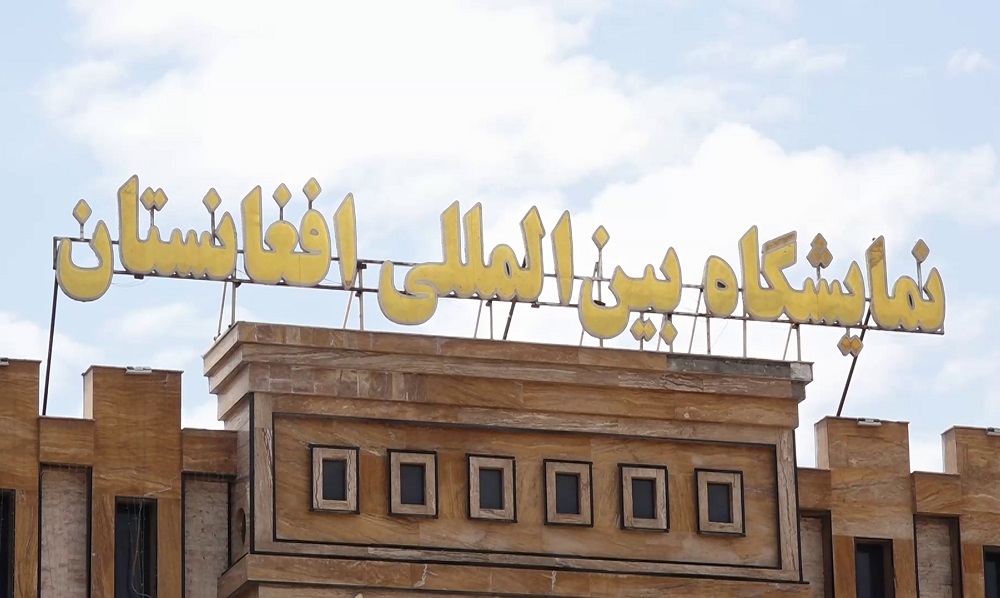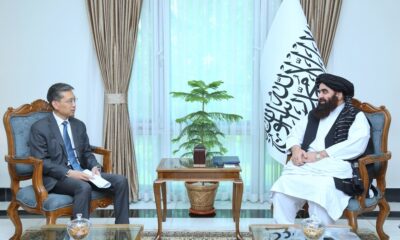Business
Afghanistan’s GDP to expand by 3% in 2021: ADB

The Asian Development Bank (ADB) forecasts that Afghanistan’s gross domestic product GDP growth will increase by 3% in 2021 and 4% in 2022 after the normalization of business activity and market sentiment.
In its Asian Development Outlook (ADO) 2021 released on Wednesday, the ADB stated that Afghanistan’s economic growth is expected to recover this year and accelerate next year after a sharp decline in 2020 from the coronavirus disease (COVID-19) pandemic and continued violence and instability.
“Afghanistan’s economy experienced unprecedented disruption in 2020 due to COVID-19 pandemic, political instability and continued violence, which cut remittances, trade, and revenue,” said ADB Country Director for Afghanistan Narendra Singru.
“With a successful COVID-19 vaccine rollout and post-pandemic recovery, the country should be on track to achieve economic growth this year and in 2022 as business activity and market sentiment normalize,” Singru said.
According to the report, inflation more than doubled from 2.3% in 2019 to 5.6% in 2020 driven by higher food prices. Food price inflation in 2020 was estimated at 10% with the highest spike recorded in April when border closure and panic buying propelled it to 16.6%. Inflation is projected to moderate to 5.0% in 2021 and 4.0% in 2022 as food supplies improve.
However, risks remain, including implementing vaccinations in remote and insecure areas, conflict, criminality, corruption, political instability, and broader social fragility. If unaddressed, these could weigh heavily on the economy and impede recovery.
“Supporting the recovery of micro, small, and medium-sized enterprises (MSMEs) hard hit by the pandemic is pivotal to safeguarding workers’ incomes and livelihoods, according to the report. Before the pandemic, MSMEs were estimated to provide nearly 1.6 million service and industry jobs. The government approved a 2-year support package worth $295 million in October 2020 to improve business conditions and implemented countercyclical measures that include support for MSMEs,” the report read.
The ADB suggests that Afghanistan should facilitate MSME access to markets by developing infrastructure, improving security, combating corruption, simplifying regulation, strengthening property rights and contract enforcement, and promoting innovation and better labor skills in order to improve the business environment.
“Increasing access to credit and further expanding the formal bank sector is also crucial,” the organization said.
“ADB is committed to achieving a prosperous, inclusive, resilient, and sustainable Asia and the Pacific while sustaining its efforts to eradicate extreme poverty. Established in 1966, it is owned by 68 members—49 from the region,” the report concluded.
Business
Afghanistan starts exporting via railway to Turkey

The Ministry of Interior says that Afghanistan has started exporting goods to Turkey via the Herat-Khaf railway line.
In a post on X, the ministry said: “Afghanistan’s exports to Turkey started in a calm atmosphere through the Herat-Khaf railway line.”
The ministry added that one train will run daily for a month and then two trains will run daily.
According to the ministry, the security of Khaf-Herat railway line is provided by the guards of the National Public Protection Agency.
Khaf-Herat railway project not only connects Iran and Afghanistan by rail, but also completes a 2,000-kilometer route along the east-west rail corridor from China, through Uzbekistan, to Afghanistan, to Iran, and on to Turkey and Europe.
As a landlocked country, this railway network will provide a safe route to connect with Europe via Iran’s railway network and Iran’s southern ports.
This railway line is strategic for trade between Iran and Afghanistan and will allow six million tons of goods to be sent between the two countries.
Business
Afghanistan, Kazakhstan to hold joint expo in Kabul

A joint expo between Afghanistan and Kazakhstan will be held in Kabul in the next four days, officials said on Sunday.
Officials of the Ministry of Industry and Commerce said that the two-day expo will be held for the purpose of expanding and strengthening trade relations between the two countries.
“This expo will be held as a follow-up of the Kazakh-Afghan international expo, which was held in the city of Astana, Kazakhstan, with the participation of a large delegation of the government and the private sector of the Islamic Emirate of Afghanistan,” Abdulsalam Javad Akhundzadeh, the spokesman of the Ministry of Industry and Commerce, said.
“At this expo, domestic products from different sectors of Afghanistan and the Republic of Kazakhstan will be put on display for two days.”
According to officials, 40 large Kazakh companies, and 40 large Afghan companies will exhibit their products.
Mohammad Saber Latifi, head of the Afghanistan International Expo Center, said that fruits, minerals and commercial services will be displayed at the expo.
During the expo, various memorandums of understanding for the trade of goods are also expected to be signed by companies.
Business
Afghanistan’s economic prospects are bleak: World Bank

The absence of GDP growth coupled with declining external financing avenues for off-budget expenditures paint a bleak picture of Afghanistan’s economic prospects, the World Bank said.
After a severe 20.7 percent GDP contraction in 2021, the Afghan economy contracted further by 6.2 percent in 2022, the bank said in a report.
“While Afghanistan’s agricultural and subsistence economy, including illicit opium production, provided some resilience in rural areas, higher prices, reduced demand, lower employment, and disruptions to services had severe impacts across the country,” it said.
The proportion of households that did not have enough income to meet basic food needs more than doubled from 16 percent to 36 percent in this period, according to the bank.
In the context of deep concerns about the policies of the Islamic Emirate of Afghanistan (IEA), including restrictions imposed on women and girls, the international community, including the World Bank, recalibrated its approach to supporting Afghanistan: first to providing humanitarian support and then to providing off-budget support for basic service delivery and livelihoods.
However, IEA moved to restore domestic revenues, which reached $2.2 billion or 15 percent of GDP in 2022. “Nevertheless, overall economic activity remained depressed, unemployment stayed high, and the banking sector was dysfunctional due to constraints on international transfers and concerns about liquidity and solvency.”
World Bank said that Afghanistan’s economic outlook remains uncertain, with the threat of stagnation looming large until at least 2025. “This economic stagnation will deepen poverty and unemployment, with job opportunities expected to decrease and food insecurity expected to increase.”
The bank noted that for a sustainable future, Afghanistan needs to focus on its comparative advantages, particularly in the agricultural and extractive sectors. Agriculture could be a key driver of growth and poverty reduction, with the potential to create jobs, it added.
-

 Business5 days ago
Business5 days agoCommerce ministry inks 10 MoUs to boost development of small and medium-sized businesses
-

 Sport4 days ago
Sport4 days agoRashid Khan threatens BBL pullout after Australia postpones Afghanistan T20I series
-

 Latest News5 days ago
Latest News5 days agoOver 6,000 acres of land cleared of poppies in Badakhshan
-

 Latest News5 days ago
Latest News5 days agoMSF ‘deeply concerned’ over new phase of deportations of Afghans from Pakistan
-

 Sport3 days ago
Sport3 days agoAfghanistan Champions League kicks off with grand opening ceremony
-

 Latest News3 days ago
Latest News3 days agoPakistan’s frontiers minister stresses ‘dignified’ return of Afghan refugees
-

 Regional4 days ago
Regional4 days agoIran’s foreign minister downplays drone attack, says Tehran investigating
-

 Latest News4 days ago
Latest News4 days agoTen people killed by floods in Helmand






















